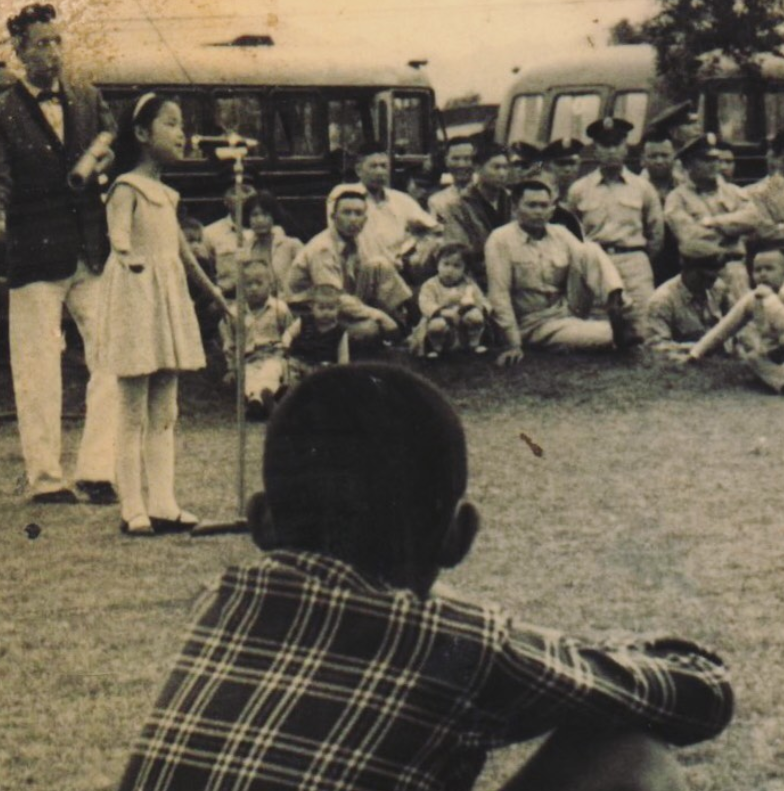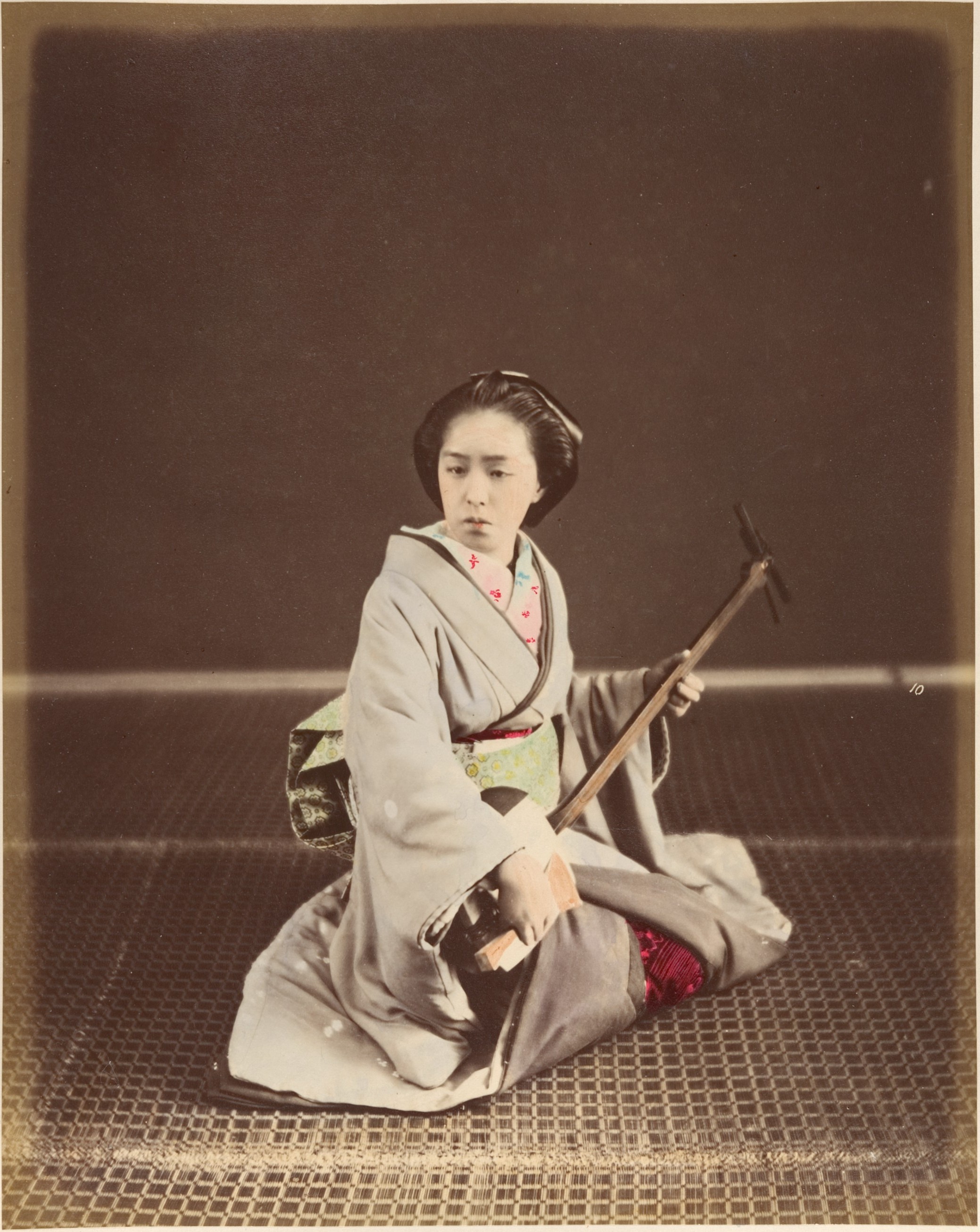|
Tsugaru Kaikyō Fuyugeshiki
"Tsugaru Kaikyō Fuyugeshiki" (津軽海峡・冬景色 Tsugaru Strait - Winter Scene) is the 15th single and signature song by Japanese singer Sayuri Ishikawa. The song is written by Yu Aku as lyricist and Takashi Miki ( 三木たかし) as composer and arranger. The song sold over 727,000 units. The single was released on 1 January 1977 by Nippon Columbia. Together with “ Amagi-goe”, the song is Ishikawa's most popular from her career. The hit of this song resulted in Ishikawa's first nomination for the Nippon Record Taisho Award (Japan Record Award 日本レコード大賞) in 1977 but she did not win the award. In the same year, she appeared as a contestant to the annual NHK Kōhaku Uta Gassen for the first time in her career. As of 2018, Ishikawa has sung Tsugaru Kaikyō Fuyugeshiki ten times at the NHK Kōhaku Uta gassen. Tsugaru Kaikyō Fuyugeshiki originally appeared as the song representing the month of December in Ishikawa's concept album titled '' Hana Kuyou � ... [...More Info...] [...Related Items...] OR: [Wikipedia] [Google] [Baidu] |
Sayuri Ishikawa
is a Japanese enka singer who made her professional debut in 1973. With a career nearing five decades, she is one of the most-recognized and successful enka singers in history. Ishikawa is a popular contestant on the annual NHK ''Kōhaku Uta Gassen'' broadcast. Up till 2017, she has been invited to perform 40 times since 1977, the year she released her biggest hit, " Tsugaru Kaikyo-Fuyugeshiki". To date, she holds the record for the most appearances in the ''NHK Kōhaku Uta Gassen'' for a female artist. She has released over 100 albums (including compilation albumsIshikawa's official website lists only her Teichiku albums.) and more than 120 singles, of which a few were not enka, but rock and jazz music instead. Another of her biggest hits, " Amagi-goe", which was released in 1986, won her many awards, and many believe that it was this song that made her an icon as an A-list enka singer. Biography Ishikawa grew up during enka's heyday and went with her mother and grandmother to ... [...More Info...] [...Related Items...] OR: [Wikipedia] [Google] [Baidu] |
Huang Yee-ling
Huang Yee-ling (born Huang Ming-chu on 20 September 1969) is a Taiwanese Hokkien pop singer. She has released 32 Hokkien pop albums since 1987, and 3 Japanese albums between 1988 and 1990. She won Golden Melody Award for Best Female Hokkien singer a record 4 times (tied with Jody Chiang Jody Chiang or Jiang Hui (), born Jiang Shuhui (), is a Taiwanese popular singer. She began recording in the 1980s and retired in 2015, having released 60 albums. Her trademark ballads and folk songs are typically sung in Taiwanese. Her role ...), in 1999 (10th), 2006 (17th), 2009 (20th), and 2014 (25th). External links * Musicians from New Taipei Taiwanese Hokkien pop singers 1969 births Japanese-language singers Living people Tibetan Buddhists from Taiwan 20th-century Taiwanese women singers 21st-century Taiwanese women singers {{Taiwan-singer-stub ... [...More Info...] [...Related Items...] OR: [Wikipedia] [Google] [Baidu] |
Discogs
Discogs (short for discographies) is a database of information about audio recordings, including commercial releases, promotional releases, and bootleg or off-label releases. While the site was originally created with a goal of becoming the largest online database of electronic music, the site now includes releases in all genres on all formats. After the database was opened to contributions from the public, rock music began to become the most prevalent genre listed. , Discogs contains over 15.7 million releases, by over 8.3 million artists, across over 1.9 million labels, contributed from over 644,000 contributor user accounts – with these figures constantly growing as users continually add previously unlisted releases to the site over time. The Discogs servers, currently hosted under the domain name discogs.com, are owned by Zink Media, Inc. and located in Portland, Oregon, United States. History The discogs.com domain name was registered in August 2000, and Discogs itself ... [...More Info...] [...Related Items...] OR: [Wikipedia] [Google] [Baidu] |
Teresa Teng
Teng Li-Chun (; 29 January 1953 – 8 May 1995), commonly known as Teresa Teng, was a Taiwanese singer, actress, musician and philanthropist. Referred to by some as " Asia's eternal queen of pop," Teng became a cultural icon for her contributions to Mandopop, giving birth to the phrase, "Wherever there are Chinese people, there is the music of Teresa Teng," and is cited by many as one of the most successful Asian artists of all time. With a career spanning almost 30 years, Teng established herself as a dominant and influential force in Asia throughout most of her career, including East Asia, Southeast Asia, and, to some extent, South Asia. She is often hailed as Asia's first pop superstar and by some as the pioneer of contemporary Chinese pop music—a major force in the development of the Chinese music industry by incorporating western and eastern styles into her music, replacing the most revolutionary songs then prevalent in mainland China and laying the foundation for modern ... [...More Info...] [...Related Items...] OR: [Wikipedia] [Google] [Baidu] |
Shamisen
The , also known as the or (all meaning "three strings"), is a three-stringed traditional Japanese musical instrument derived from the Chinese instrument . It is played with a plectrum called a bachi. The Japanese pronunciation is usually but sometimes when used as a suffix, according to regular sound change (e.g. ). In Western Japanese dialects and several Edo period sources, it is both written and pronounced as . The construction of the varies in shape, depending on the genre in which it is used. The instrument used to accompany kabuki has a thin neck, facilitating the agile and virtuosic requirements of that genre. The one used to accompany puppet plays and folk songs has a longer and thicker neck instead, to match the more robust music of those genres. Construction The is a plucked stringed instrument. Its construction follows a model similar to that of a guitar or a banjo, with a neck and strings stretched across a resonating body. The neck of the is fret ... [...More Info...] [...Related Items...] OR: [Wikipedia] [Google] [Baidu] |
Guitar
The guitar is a fretted musical instrument that typically has six strings. It is usually held flat against the player's body and played by strumming or plucking the strings with the dominant hand, while simultaneously pressing selected strings against frets with the fingers of the opposite hand. A plectrum or individual finger picks may also be used to strike the strings. The sound of the guitar is projected either acoustically, by means of a resonant chamber on the instrument, or amplified by an electronic pickup and an amplifier. The guitar is classified as a chordophone – meaning the sound is produced by a vibrating string stretched between two fixed points. Historically, a guitar was constructed from wood with its strings made of catgut. Steel guitar strings were introduced near the end of the nineteenth century in the United States; nylon strings came in the 1940s. The guitar's ancestors include the gittern, the vihuela, the four- course Renaissance guitar, and the ... [...More Info...] [...Related Items...] OR: [Wikipedia] [Google] [Baidu] |
Teichiku
is a Japanese record label, run by , that specializes in enka, kayōkyoku, and similar music. Teichiku is an abbreviation for , the former name of the company. Teichiku Entertainment also runs the record labels Imperial Records, Takumi Note, and . It is a division of commercial karaoke manufacturer XING Inc., itself a subsidiary of Brother Industries. Offices of Teichiku Entertainment, Inc. *Head office - Shiba Park Building, 2-4-1, Shiba koen, Minato-ku, Tokyo, Japan *Osaka office - Sankyu Building, 2-14, Azuchimachi Sanchome, Chūō-ku, Osaka, Japan History *February 11, 1934 - Teikoku Chikuonki Company (帝国蓄音機株式会社) was founded in Nara, Japan. *September 1951 - Contracted with Decca Records. *February 1952 - Started to sell Decca records. *February 11, 1953 - Teikoku Chikuonki was renamed Teichiku, Inc. (テイチク株式会社). In the same year, the company began using magnetic tape for recording. *1954 - Began selling LP records and EP records. * ... [...More Info...] [...Related Items...] OR: [Wikipedia] [Google] [Baidu] |
Pony Canyon
, also known by the shorthand form , is a Japanese mass media publishing company founded on October 1, 1966. The company publishes mainly physical home media on compact discs, including music, films and TV shows and video games. It is affiliated with the Japanese media group Fujisankei Communications Group. Pony Canyon is a major leader in the music industry in Japan, with its artists regularly at the top of the Japanese charts. Pony Canyon is also responsible for releasing taped concerts from its artists as well as many anime productions and several film productions. Pony Canyon is headquartered in Tokyo with offices in Taiwan, Malaysia and South Korea. It employs approximately 360 people. Pony Canyon also owns the recording label Flight Master. History On October 1, 1966, Nippon Broadcasting System, Inc. opened a new record label division, called as Nippon Broadcasting System Service, Inc., in order to produce and market music from Japanese artists. The division formally c ... [...More Info...] [...Related Items...] OR: [Wikipedia] [Google] [Baidu] |



